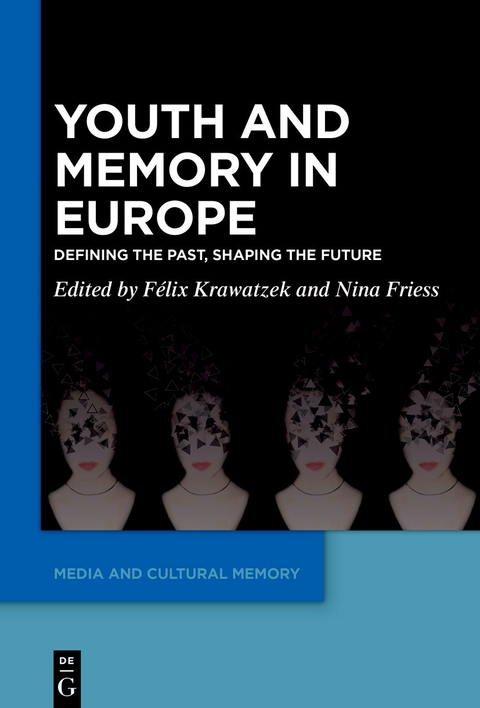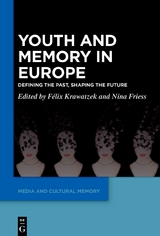Youth and Memory in Europe
Defining the Past, Shaping the Future
Seiten
2022
De Gruyter (Verlag)
978-3-11-073830-8 (ISBN)
De Gruyter (Verlag)
978-3-11-073830-8 (ISBN)
Im Kontext der kulturwissenschaftlichen Gedächtnisforschung widmet sich diese interdisziplinär ausgerichtete Reihe dem Verhältnis von Medien und kultureller Erinnerung. Die hier vorgestellten Studien behandeln die ganze Bandbreite der durch Medien konstruierten, tradierten und verbreiteten Erinnerung. Schrift und Bild, das Kino und die ‘neuen’ digitalen Medien, Intermedialität, Transmedialität und Remediation sowie die sozialen, zunehmend transnationalen und transkulturellen, Kontexte der mediatisierten Erinnerung gehören zu den Forschungsinteressen der Reihe. Ziel ist es, eine internationale Plattform für die interdisziplinäre Medien- und Gedächtnisforschung zu schaffen. Eingereichte Manuskripte werden im peer review Verfahren durch externe Experten begutachtet.
This volume contends that young individuals across Europe relate to their country’s history in complex and often ambivalent ways. It pays attention to how both formal education and broader culture communicate ideas about the past, and how young people respond to these ideas. The studies collected in this volume show that such ideas about the past are central to the formation of the group identities of nations, social movements, or religious groups. Young people express received historical narratives in new, potentially subversive, ways. As young people tend to be more mobile and ready to interrogate their own roots than later generations, they selectively privilege certain aspects of their identities and their identification with their family or nation while neglecting others. This collection aims to correct the popular misperception that young people are indifferent towards history and prove instead that historical narratives are constitutive to their individual identities and their sense of belonging to something broader than themselves.
This volume contends that young individuals across Europe relate to their country’s history in complex and often ambivalent ways. It pays attention to how both formal education and broader culture communicate ideas about the past, and how young people respond to these ideas. The studies collected in this volume show that such ideas about the past are central to the formation of the group identities of nations, social movements, or religious groups. Young people express received historical narratives in new, potentially subversive, ways. As young people tend to be more mobile and ready to interrogate their own roots than later generations, they selectively privilege certain aspects of their identities and their identification with their family or nation while neglecting others. This collection aims to correct the popular misperception that young people are indifferent towards history and prove instead that historical narratives are constitutive to their individual identities and their sense of belonging to something broader than themselves.
lt;strong>Félix Krawatzek und Nina Friess, Centre for East European and International Studies (ZOiS), Berlin, Germany.
| Erscheinungsdatum | 10.05.2022 |
|---|---|
| Reihe/Serie | Media and Cultural Memory ; 34 |
| Zusatzinfo | 16 col. ill., 3 b/w tbl. |
| Verlagsort | Berlin/Boston |
| Sprache | englisch |
| Maße | 155 x 230 mm |
| Gewicht | 699 g |
| Themenwelt | Geisteswissenschaften ► Sprach- / Literaturwissenschaft |
| Sozialwissenschaften | |
| Schlagworte | Cultural Studies • Memory Studies • Research methods • Social Sciences • Youth |
| ISBN-10 | 3-11-073830-9 / 3110738309 |
| ISBN-13 | 978-3-11-073830-8 / 9783110738308 |
| Zustand | Neuware |
| Haben Sie eine Frage zum Produkt? |
Mehr entdecken
aus dem Bereich
aus dem Bereich
Der Wegweiser für schriftliche Arbeiten auf der Sekundarstufe II
Buch | Softcover (2024)
hep verlag
16,00 €
theoretische und praxeologische Implikationen
Buch | Hardcover (2024)
Wallstein (Verlag)
34,00 €




